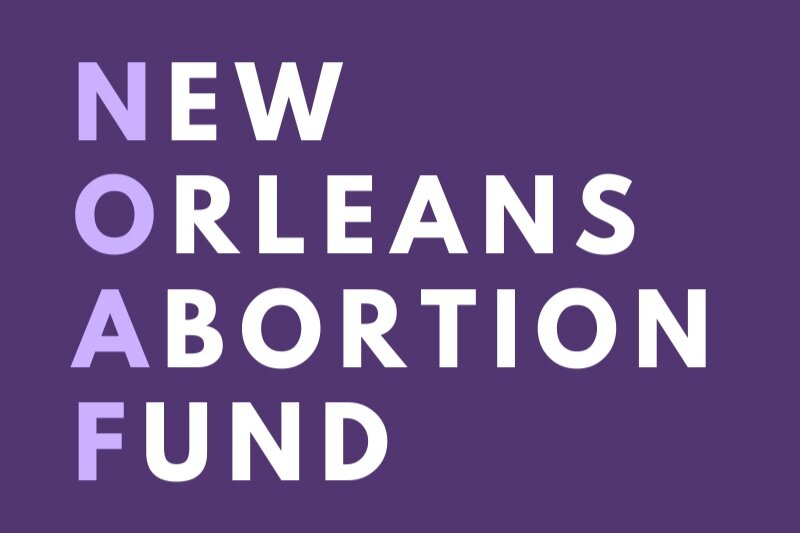Amy’s Story
As told at the 1in3 Abortion SpeakOut, Washington, D.C., March 21, 2017
My name is Amy Irvin, and I am the co-founder and executive director of the New Orleans Abortion Fund, which provides financial assistance to people seeking abortion care in Louisiana.
People often feel stigma or shame about their abortion experiences, which is why we don’t often hear abortion stories told publicly. That has certainly been the case for me. I have had two abortions. The first was as a 21-year-old college student in Cincinnati, and the other some 20 years later while living in New Orleans. It has taken 20 years and a lifetime of experiences to share my abortion stories. Both abortion experiences, as well as surviving a sexual assault in 2008, led me to start the abortion fund in 2012, and begin to speak more openly and courageously about my life.
I don’t remember much about the abortion I had as a college student. I was studying graphic design at the University of Cincinnati and doing an internship in Atlanta when I became pregnant. I remember feeling panic but resolve to terminate the pregnancy. I didn’t want to be a single parent like my mother who had two children at the age of 21. I wanted to finish college and begin a career. I could barely pay my bills or tuition. I didn’t have the emotional or financial support of my parents, so I didn’t tell them I was pregnant. But I felt an obligation to tell the guy involved, so I drove from Atlanta to Cincinnati to tell him. On the way, I ran out of gas and had to borrow $20 from the gas station attendant, which I promised to pay back when I came back through the next day.
I didn’t think to make an appointment at a clinic in Atlanta, which would have been more sensible. Instead I made an appointment at a clinic in Cincinnati because I wanted the support of my friends. The clinic there had a gate, and there were protesters. I asked the doctor a lot of questions. The nurse was empathetic, which I found somewhat annoying. I didn’t want comforted; I wanted answers to my questions. Then, there was not a waiting period, so I was seen in the same day. Afterwards, I drove back home to Atlanta. My college roommates didn’t even know why I was there.
My second abortion was very different. At 41, I didn’t have to worry about paying for the abortion but I gave a lot of thought to being a parent and my identity as a woman. I thought about whether I wanted to be a mother? I asked friends for guidance. In the end, I decided to terminate the pregnancy.
My appointment was at Women’s Health Care Center in New Orleans, now just one of four clinics in Louisiana. Though I was early enough in my pregnancy to have a medical abortion, I still had to go to the clinic for the ultrasound, bloodwork and mandatory “counseling.” The day of my appointment the clinic waiting room was very crowded with women from Baton Rouge, whose appointment had to be rescheduled because a provider had recently died. They were worried about getting home to Baton Rouge to meet their kids after school or to pick them up from childcare. They were angry about the extra travel time and money they had spent for gas. They were angry about the laws which imposed additional burdens, including the 24-hour waiting period, which would require a second visit to the clinic. For me, the ultrasound was so intrusive I don’t even remember it.
What I remember is the large sign above the receptionist’s desk that said “No abortion funding accepted.” Having some knowledge of abortion funding myself, I wondered Why? What were the circumstances? Sitting in the waiting room, I realized how much had changed in 20 years, and how difficult it was now to get an abortion, especially for women in Louisiana. I thought someone ought to do something. That someone turned out to be me and NOAF co-founder Jessie Nieblas. Since the New Orleans Abortion Fund began making pledges, we have assisted some 800 women in New Orleans and the Gulf Coast region.
I know now that my abortion experiences are very common, and that my story is neither unusual nor special. But I wouldn’t have known that if I had not begun to talk about my abortion, or listen to other women tell their abortion stories. It’s been a gift, and a way of healing for me. 1 in 3 U.S. women will have an abortion in their lifetime. We shouldn’t be made to feel ashamed of our healthcare decisions, which we are making in the best interest of ourselves and our families.
